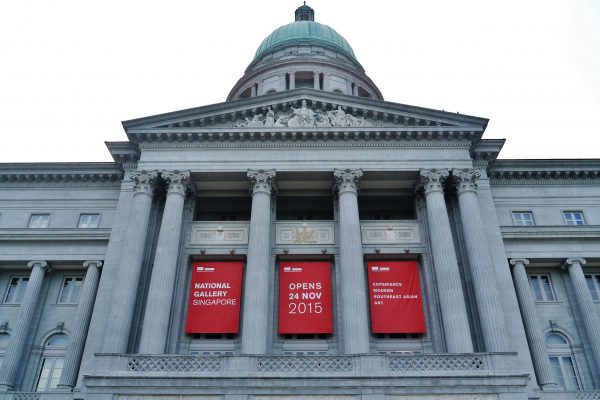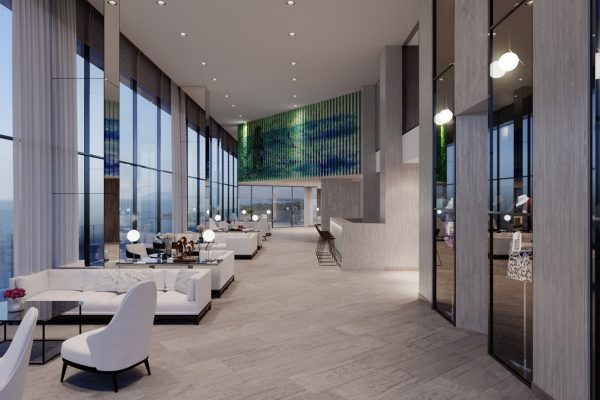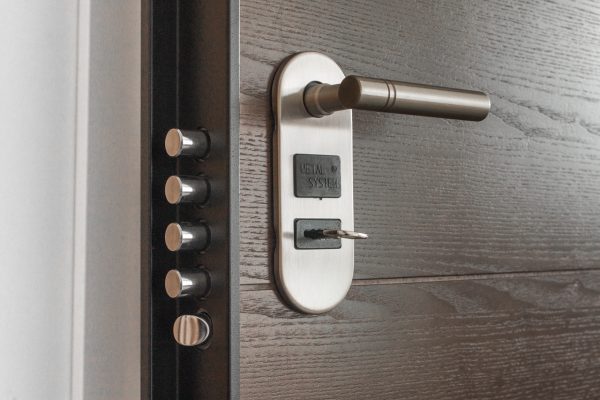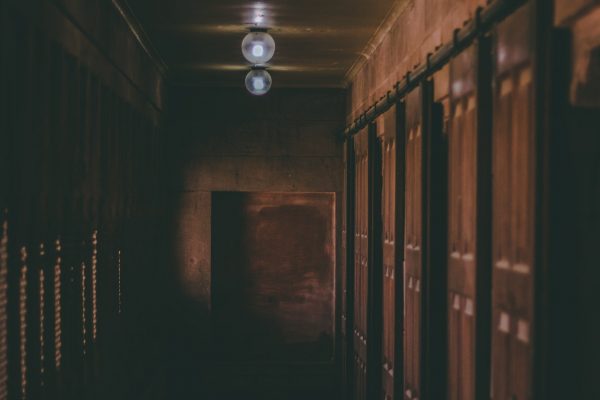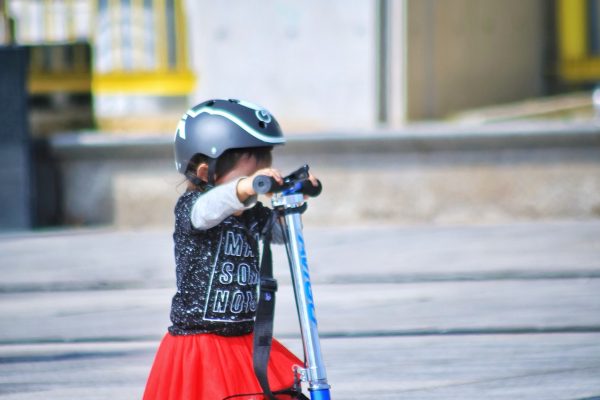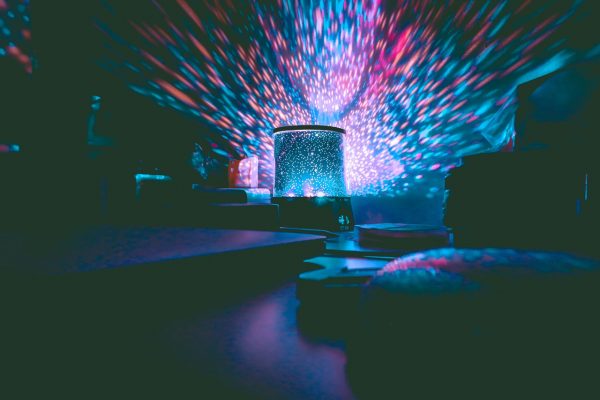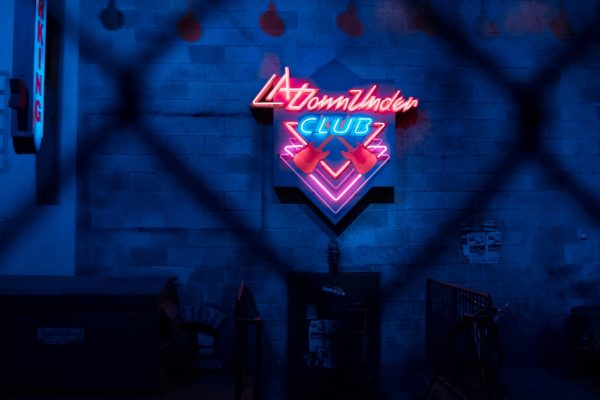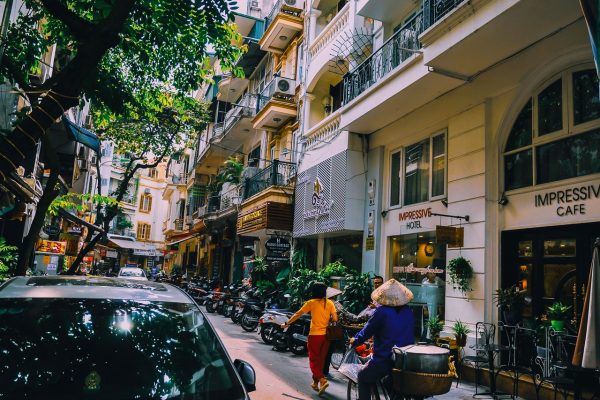On the morning of my sixth day in Singapore, I was a traveller and a writer. That was my identity, that was what I was. I had no job. I was with no friends or family. What I had was a backpack with clothes, a phone with plane tickets, a laptop with Microsoft Word, and a calendar with two empty months. All I was doing, and all I had planned to do, was travel and write, write and travel. And yet, in the afternoon of my sixth day in Singapore, I downloaded Bumble, and thus I became three things: a traveller, a writer… and a cyber dater.
I wasn’t proud. If a crystal ball were to have revealed me swiping through Bumble on a bottom bunk, I would’ve felt sorry for my future self.
I place the blame on the Singaporean hostels. They hadn’t done what I expected them to do: turn strangers into friends. That’s what had happened on all my previous trips. I’d come to expect a hostel common area to be filled with relaxed postures pondering out-loud about day plans. Bean bags had always supported great conversation. Bar rails inspired laughs and companionship. Unpacking my bag next to my bunk bed was where I met so many inviting and interesting people. For me, staying in hostels became synonymous with new and meaningful companionship–my favourite part of traveling.
The Singaporean hostels were anomalies. Rather than giving off a youthful openness, they felt blandly mature. The common rooms were dead, and I got the sense that everybody expected privacy. They reminded me of Starbucks in the sense that their founding goal might’ve been “hominess” but then they became digital nomad shelters when they saw their bottom lines. In the four places I stayed, the guests appeared to be more “worker” than “traveller”, spending their days in their laptops.
So I spent 5 days doing a lot of solo thinking, walking, and writing. It was nice and needed, but I felt bored and lonely on the 6th day. And after typing in an empty common room for a couple hours, I flopped onto my bed and downloaded Bumble because I wanted to meet up with girls. I wouldn’t have said no to sex, but mostly I just wanted company.
***
On my profile, I had a picture of myself smiling in front of a plate of tacos. Half my matches messaged me, “I love tacos!”. In my description I said that I was a writer, so the other half asked, “What kind of stuff do you write?” I ended up directing at least 10 girls to my website, which made me think, “Would I be a marketing savant if I created a bunch of fake online dating profiles with super hot guys and girls in order to gain subscribers to my site?”
After some conversations turned to organizing a date, I wondered, “After reading a bunch of my work, would the girls come to the date with a deeper understanding of my character? What if they canceled because of what they read? What if they became obsessed with me?” But in the end, I kept all these thoughts to myself and only shared my kind, safe, witty, and fun side in the Bumble chat rooms. Thankfully, this landed me three dates.
I met my first date at a subway stop after she finished work. She was Malay, and I was mesmerized by her accent. It reminded me of the Trinidadian ladies that went to my childhood church, in the sense that they seemed to speak musically. Her vocabulary and phrasing were British, but her rhythm and intonation had more flavor. Listening to her was like listening to a cover that’s better than the original song.
The content of our conversation, however, wasn’t as delightful; we couldn’t connect on anything. She read my site but had no thoughts. She worked as an event planner but didn’t like talking about work. She hadn’t gone to the same countries as me, nor had I gone to the same countries as her. We had different tastes in music and TV shows. And even though we found a commonality in our mixed backgrounds, as she had Malay and Indian parents but grew up in Singapore while I had Palestinian and Serbian parents but grew up in Canada, we got caught arguing about whether I was a “white man”.
The issue popped up during our falafel dinner and our rooftop patio beers. Being called a “white man” made me defensive because I didn’t know if I was a “white man” or not.
I argued that, growing up, I never felt like a “white man”. In Toronto, I never felt like I was in the dominant, powerful, privileged group. Economically, my immigrant parents worked long hours and went into debt to give me a happy childhood. They never benefited from ethnicity. Everyone thought my mom was Indian because her name was Karma. My dad had to change his name to Mike because his co-workers couldn’t say his real name, Miodrag. I felt embarrassed when teacher’s struggled to say my last name, Dulanovic, during attendance. I wished I had a “normal” last name, but I never shared this with my parents. Instead, during dinner conversation, I listened to them vent about Canada’s “coldness”, Serbia getting bombed, or the never-ending stories of Palestinian mothers who watch their villages get bulldozed while weeping over murdered children. In middle school gym class, after getting into it with a white kid, he told everyone to watch out because if I got emotional I might strap a bomb to my chest and blow up the school like a terrorist. I certainly didn’t feel like a “white man” while fighting back tears. In fact, I didn’t feel like I had an ethnicity at all, like I belonged nowhere. With my mom’s side of the family, my sister and I sat silently at roundtables because we didn’t speak Arabic. On my Serbian basketball team, I was called a fake-Serb because I didn’t speak Serbian. With my friends, who were mostly children of first-generation immigrants as well, I never felt defined by ethnicity. And until I left Toronto, I certainly never felt “white”.
But my date pointed out that I was privileged. And this was definitely true. I was extremely privileged in terms of my appearance, specifically while travelling. In some ways, I was even luckier than a full-on Anglo-Saxon because I got the best of both worlds. I got quality teaching jobs in Asia because my face was “marketable” and “safe”. I got kind tourist treatment because I looked like a wealthy foreigner. I got smiles from local girls because I looked like “Zac Efron”, “Arabic John Stamos”, or “Captain America”. And yet, my tan skin, green eyes, and facial hair made me look just exotic enough to hang with any hostel group. I was embraced by British and Australian lads, black American graduates, Israeli soldiers, French football fanatics, Italian Peace Corps volunteers, Korean flight attendants, Swiss architects, Russian social media influencers, Kiwi basketball fans, African engineers, and Indian coders. All these groups deemed me “cool enough”, so, when I was around, they could talk freely. I was Canadian with immigrant parents, so people could hate on America in my presence. I was culturally Western, so Westerners told me about their racist parents and half-baked observations on Eastern culture. In this sense, I had the ultimate traveller’s privilege: judged by no one, accepted by everyone.
Unfortunately, I didn’t have this depth of thought when my date called me a “white man” a couple times. I became angry and closed-off. In my head, I had always been proud of my ability to connect with people. In my head, I always needed to impress pretty women. Calling me a “white man” triggered both of these insecurities, as she was telling me we would never relate and I wasn’t impressive. Additionally, it felt like she was discounting me of an ethnically confused upbringing while also injecting me with a sense of guilt over my upcoming trip.
We made shallow conversation, and, when I realized two beers cost 30 American dollars, I used my cheapness as an excuse to end the date. As she got into her cab, I sensed a sadness in her, which perhaps was the reason she asked to hang out again the next day, but I was too self-involved to contemplate her feelings. Instead, I put on my earphones and walked back to my boring hostel.
The next day, I met my second date next to the Gardens by the Bay. We went to her favourite spot: the Water Treatment Centre, which had walkable ramps that led to its grassy roof. We were the only ones there. The elevation gifted us a nice portrait of the city: the gardens at the bottom, the sea and harbor on the right, and the elegant squeeze of skyscrapers straight ahead.
With our elbows on the railing, we took turns summarizing our lives. She had been in a dysfunctional relationship for a long time but seemed to have rediscovered herself during the break up. I had never lost myself in romance, so I just listened and asked questions, curious.
At one point we stopped talking and just looked out. She seemed to withdraw into herself as the wind tossed her hair on her face. I did the same and thought about how I, too, had my favourite spots back in Busan: the clearing on Geumnyeonsan or the big steps at the end of Gwangan beach. I had done a lot of thinking and walking around those parts, and I imagined she had done the same here. I felt touched that she would share that place with me.
Afterwards, we ended up at a cafe. She had just gotten a new teaching job and had plenty of bad things to say about her old gig. I didn’t, but I went along in complaining about universal teaching issues: rigid curricula, over-testing, annoying bosses, and rich and unreasonably demanding mothers. We agreed that teachers were always fighting an uphill battle, but, deep inside, I knew we had it good. 99% of the time, teaching was an awesome job– complaining just made for better conversation.
A couple hours later, I met my third date, but I didn’t feel sleazy about it. No promises were made, no lies were told. These weren’t the start of relationships; they were conversation for the sake of company.
My third “meeting” was with a Korean girl who had only lived in Singapore for a year, working for a full-Korean company. Because she only had Korean friends and only spoke Korean at work, she warned me that her English wasn’t good, but I told her not to worry. I didn’t mind.
In fact, I’d come to appreciate the role of being an assuring conversation partner to non-fluent speakers. In Seoul, I’d initially felt frustrated whenever I couldn’t speak “naturally”, but this was largely a projection of my own fear of being understood, and thus being disliked. Luckily, after some time, I switched up my mental framing and took ESL teaching and living abroad as an opportunity to refine my verbal fluency. In class, I worked on reducing my “empty” and unnecessarily “big” words, slowing my pace, and being patient with pronunciation. Outside of class, I tried to speak clearly without being patronizing. I vowed to never be that traveller who speaks to non-native speakers as if they’re 5 years old or an idiot.
Yet, I’d be lying if I said practicing this kind of speech was purely altruistic. I also did it because I noticed it made me a better speaker and writer in general. It made dating cute locals way more interesting and fun, too.
After eating some ribs, we walked to Clarke Quay, the city’s “party district”. Bordering both sides of the Singapore River were patios serving up platters and beer towers to business suits. There was an eerily professional scene everywhere I looked, so, once again, I felt like I’d wandered onto a commercial set. This time the ad-turned-reality was for a classy resto-bar, the kind that prides itself on cocktails, crafts beers, sharp interior design, and an attractive patio. All the guys were in ironed and fitted white dress shirts and tight pants, holding doors, sliding out chairs, and offering to buy the next round. Their faces perpetually looked as if they’d said something witty. I swore they smiled in slow motion. The girls were in nice black or floral dresses, dabbing their lips with napkins, adding events to their e-calendars, and smiling for unnatural durations. Apple Watches flashed upon hand movements. Company credit cards were swiped. Backs were straight. Faces were moisturized and focused. There seemed just enough sexual tension floating around to induce some flirting but ultimately never enough to wreck a home.
This corporate leisure existed on one side of the Singapore river, on the side where we were sitting. I looked at my mocktails, which we’d ordered because my date didn’t drink, and the surrounding finance and business professionals. This was not where I wanted to be. When she asked where I wanted to go next, I pointed across the river to the “party side”.
Yet, after crossing the bridge, and walking under the circus-style tents and by promoters passing out flyers, the decade’s radio hits, and clouds of sheesha smoke, my date expressed that she didn’t want to be on this side. We settled in the middle: sitting by the river.
With our legs dangling above the murky water, she licked an ice cream and I finished 75% of my four-pack of Sapporo cans. We talked about being split between returning to our native home or establishing a new home somewhere else. I said I missed my friends, which reminded her that her best friend was on exchange in Toronto. Even more coincidentally, it turned out she was at Seneca College, where I’d been a camp counselor for four years. We facetimed her, and I knew the exact study area where she was sitting. After our call, the conversation fizzled out, so we hugged and wished each other luck, and I walked home with my last Sapporo.
***
For my last three days, I moved to a different hostel that was further from the city centre, closer to the airport. Betel Box was tucked into a suburban neighborhood. Inside, there still wasn’t a collegial atmosphere, but the common room was big. Through the door, sitting in a carved out rectangle inside an L-shaped wooden bar, was John. He was, by far, the friendlist hostel receptionist I’d met in Singapore, and we sparked a little friendship, going for coconut ice cream or duck noodles, or chatting about discipline and history when he wasn’t signing people in or sliding beers and snacks to guests. To the left of John were a bunch of long tables, where guests chowed down their take-out and Facetimed. Next to the tables, three comfy couches surrounded a wall-mounted TV. Every day, an old lady would lie down on one of the couches and watch the news on her phone until she dozed off and the phone fell onto her chest. Behind those couches, in the corner, was another long table with nice desk chairs that faced the rest of the room. This is where I sat for hours, bobbing my head to music, people-watching, and writing the early chapters of this book. The other corner was a book nook, and, whenever I got tired of writing, I sunk into the armchair and read The Corrections.
I only left the hostel twice. The first time was for an exhibit called 2219: Futures Imagined. It predicted how Singapore rooms would look 200 years in the future. The most striking adjustments were linked to the prediction that the peninsula would be flooded by that time. A kayak, for municipal transportat, hung over a couch. There were advertisements for lifeguard robots. Tank vegetables sprouted in the kitchen. Above them were shelves of cooking books, one for making meals with cockroaches. Recorded knowledge, the exhibit implied, would return to books, as Internet servers would be wiped out by the flood. Additionally, all these bunker-style houses would exist under a city wide umbrella, which would shelter future humans from unmitigated UV rays.
Possibly spurred by this exhibit, I went for a nice bike ride the next day. Renting a 21-speed from the hostel, I managed to cover a quarter of the entire Singaporeon border in one day, which speaks to the country’s size as well as its nice bike paths. Peddling hard with earphones reconnected me to my boyhood and reminded me that I’m happiest when in motion. Instead of being guilted into “enjoying a cocktail at the top of the rooftop bar at the Marina Bay Sands”, I lived these last Singaporeon days on my own terms.
Taal Volcano erupted a day before my flight to the Philippines. The ashes spread as far as Metro Manilla, grounding flights. Luckily, I was landing in Cebu, which was 572km away from the capital. To my relief, I got no cancelation e-mails.
The old lady who used to pass out on the couch helped me fold my laundry. Shaking her head at my stuffing, she removed all my clothes from my Osprey and implemented her own packing method: rolling up underwear, shorts, shirts, and socks into one unit, creating a series of complete outfit burritos. This stranger-kindness continued as the hostel owner offered to take me to the airport. I shook hands with John and promised to host him in Vietnam, and, half an hour later, I was wandering through the futuristic Singapore airport, putting down a Shake Shack and staring at an indoor waterfall.
Eventually it was time for my flight. Singapore Airport security ruthlessly stripped me of most of my toiletries, so I left the country much lighter than I had entered it. And, as the plane rumbled into the night sky, I took a deep breath, knowing that I was heading to a much different place: the Philippines.


